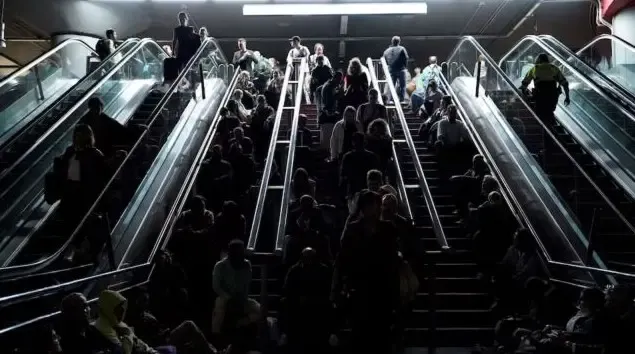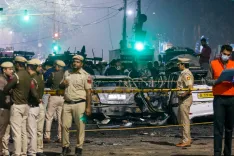What Caused the Power Outage in Enschede, Netherlands?

Synopsis
Key Takeaways
- 20,000 households lost power for two hours in Enschede.
- The outage was linked to a short circuit during maintenance.
- Shops were forced to close due to inoperable cash registers.
- Concerns were raised about the country’s emergency preparedness.
- Half of the country’s fire stations may lack proper emergency equipment.
The Hague, May 1 (NationPress) A significant power outage impacted the eastern Dutch city of Enschede, leaving over 20,000 households without electricity for approximately two hours, as reported by local authorities.
As stated by the Dutch grid operator Enexis, the blackout occurred due to a short circuit during maintenance activities at a distribution station.
The disruption commenced around 11 a.m. local time, affecting both residential and commercial establishments in the city, which is home to nearly 160,000 residents, according to Xinhua news agency.
Numerous shops had to shut down as cash registers and ATMs became non-functional.
A technician sustained injuries from the short circuit and was transported to the hospital with unspecified injuries, as reported by the local safety region.
While the issue was swiftly addressed, it raised wider concerns regarding the nation’s ability to handle large-scale outages, especially following the extensive blackout that hit Spain and Portugal earlier this week.
"The likelihood of a similar incident here is quite low, but still - what if?" remarked Hein van der Loo, Chairman of the National Safety Council, during an interview with the television program Nieuwsuur.
The Netherlands is organized into 25 safety regions that manage emergency services on local, regional, and national levels.
Van der Loo noted that these systems are generally efficient but expressed worries about the preparedness of fire stations in the event of a significant power failure.
He estimated that around 50% of the country’s nearly 1,000 fire stations are inadequately prepared, urging that each station should be equipped with an emergency generator.
He highlighted that the recent events in Spain and Portugal should serve as a wake-up call for the government, emphasizing the urgent need for a reliable network of emergency support points in the Netherlands.
The blackout began around midday, leading to office closures and severe traffic disruptions in Madrid and Lisbon, while some citizens in Barcelona took it upon themselves to direct traffic.
Train operations in both countries were halted, and even with power restoration later on Monday, it wouldn’t be possible to resume services, as stated by Spain’s Transportation Minister Oscar Puente on social media.
In response, Spain’s Prime Minister Pedro Sanchez called for an extraordinary session of the National Security Council.
The Portuguese Cabinet also convened an emergency meeting at the Prime Minister's residence.
Portuguese Prime Minister Luís Montenegro mentioned he had multiple discussions with Sanchez and anticipated power restoration by the end of Monday.









